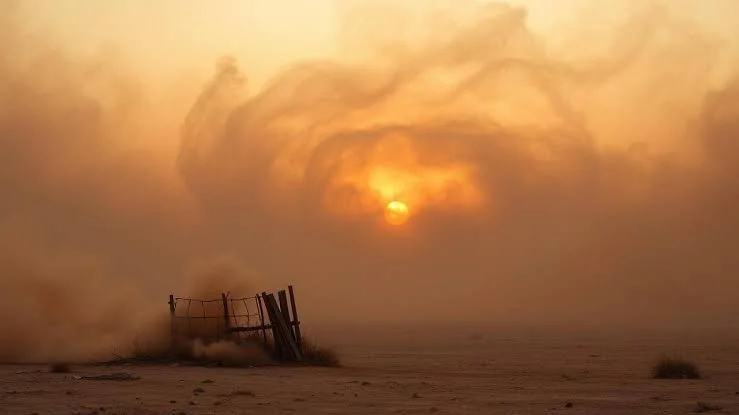A colossal cloud of Sahara dust, unprecedented in size and concentration for half a century, has engulfed the Caribbean, triggering hazardous air quality and health warnings as it moves toward the US southeast coast.
Experts have dubbed this phenomenon the “Godzilla dust cloud,” urging residents to stay indoors and use air filters.
Unprecedented Dust Event
“This is the most significant event in the past 50 years,” said Pablo Méndez Lázaro, an environmental health specialist at the University of Puerto Rico, who is collaborating with NASA to develop a Sahara dust alert system.
He warned that the dust’s high concentration poses risks even to healthy individuals, with particular concern for those with Covid-19-related respiratory issues.
The Saharan Air Layer (SAL), a mass of dry, dusty air forming over the Sahara Desert, has caused extremely hazy conditions and reduced visibility from Antigua to Trinidad & Tobago.
The main international airport in San Juan reported visibility of just 8km (5 miles) on June 22, 2020.
Social media posts captured residents wearing double masks to protect against both the dust and coronavirus, while others likened the Caribbean’s yellow-tinted skies to a movie filter.
Health and Environmental Impact
The dust cloud, which can reach 3km in thickness, has driven air quality to record “hazardous” levels across the region, according to the US National Oceanic and Atmospheric Administration (NOAA).
José Alamo, a meteorologist with the US National Weather Service in San Juan, said the worst days for Puerto Rico would be June 22 and 23, with the plume expected to reach the US southeast coast soon after.
The event is projected to persist in the Caribbean until late Tuesday, June 23, 2020.
Saharan Air Layer Dynamics
The SAL forms over the Sahara and moves across the North Atlantic every three to five days from late spring to early fall, peaking from late June to mid-August, per NOAA.
This 2020 event, however, stands out for its intensity, raising concerns about its impact on public health, particularly amid the ongoing Covid-19 pandemic.






